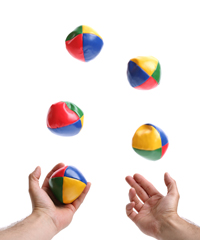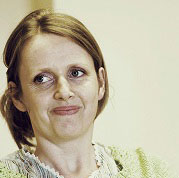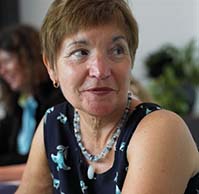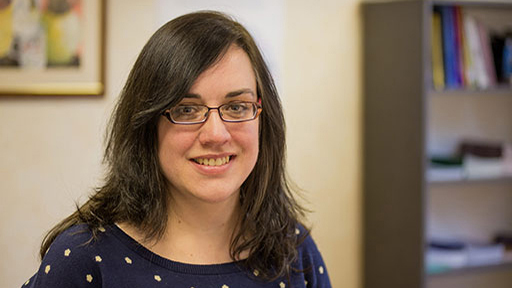Use 'Print preview' to check the number of pages and printer settings.
Print functionality varies between browsers.
Printable page generated Thursday, 27 November 2025, 10:44 AM
Session 3: Identifying carers’ skills, qualities and attributes
Introduction

In this session we are going to look at learning in terms of skills, qualities and attributes gained both from caring responsibilities and through other areas of life. Skills might be considered as an ability or expertise that can be learned through practice, while qualities and attributes might be viewed as something more inherent, a characteristic trait, but which can be nurtured and perhaps developed.
Learning outcomes
After working through this session you will have:
a clearer understanding of the experiences of carers
an appreciation of the various skills, qualities and attributes that carers may develop and how some of these are transferable to work contexts.
Carers’ skills, qualities and attributes
Start by listening to Gavin, a young adult carer transitions worker at Renfrewshire Carers Centre. He is talking about the skills and qualities he has noticed in the young adult carers he works with.

Transcript
Gavin used some of the following key words and phrases to describe carers:
- organised
- reliable
- able to handle pressure
- caring
- in touch with their emotions
- able to identify other people’s emotions.
Activity 3.1 Reflection on Gavin’s observations
Think about the following question and make some notes in your notebook or Reflection Log.
- What are your thoughts about Gavin’s observations?
Go to Activity 3.1 in your Reflection Log. Once you have completed the activity make sure you save the document again. Alternatively, you can use this document but don’t forget to save it.
If you are doing this course as part of a group or with a mentor then you can share your answers and discuss your notes with others.
Learning points
Look back at Lesley and Scott’s timelines and learning points in Session 2, and Jade’s roles and responsibilities in Session 1. Think about their different experiences as you read through these summaries of their skills and qualities.
Lesley
- Organised: juggling a range of caring and parenting responsibilities, part-time work, volunteering and study. Can plan and manage.
- Communication skills: liaison with a range of education and health professionals to support children’s needs.
- Knows how to handle stress: has got through difficult times and developed coping skills.
Scott
- Prioritising and time management: supporting brother and dad while studying and volunteering with carers centre.
- Communication skills: speaking at carers events, advocate for carers.
- Critical thinking: caring and experience has shown that there are alternative view points, applying college knowledge to caring.
- Team work: working with young adult carers to campaign for more support for young adult carers in Scotland.
Jade
- Organised: working with young people to organise events and provide support.
- Initiative: organised own volunteering. Sought and took up opportunities for training and studying.
- Confidence: taking initiative, making decisions and succeeding means increased personal confidence.
- Communication skills: working with new people in a volunteering role has shown her that she can get on well with others. Working with young people has helped develop her capability to listen, empathise and mentor.
- Determination and resilience: she hasn’t let setbacks like leaving college prevent her from making plans and taking action, or accept and complete personal challenges such as a sailing course.
Activity 3.2 Reflection on carers’ timelines and learning points
Think about the following question and make some notes in your notebook or Reflection Log.
- Looking at the carers’ timelines and learning points, are there other skills and qualities you think could be added to these lists?
Go to Activity 3.2 in your Reflection Log. Once you have completed the activity make sure you save the document again. Alternatively, you can use this document but don’t forget to save it.
If you are doing this course as part of a group or with a mentor then you can share your answers and discuss your notes with others.
Thinking about skills, qualities and attributes
First we will hear from various carers about the skills, qualities and attributes they have developed from their caring roles. Then it will be your turn to think about this in terms of what carers bring to the workplace.
Activity 3.3 Reflection on valued skills and qualities in the workforce
Think about the following question and make some notes in your notebook or Reflection Log.
- What skills and qualities would you value in your workforce?
Go to Activity 3.3 in your Reflection Log. Once you have completed the activity make sure you save the document again. Alternatively, you can use this document but don’t forget to save it.
If you are doing this course as part of a group or with a mentor then you can share your answers and discuss your notes with others.
Dean
Listen to Dean talking about the skills he’s gained through his many caring roles.

Transcript
Clair

Clair reflects on how caring, and the need to see things from the point of view of the person she is caring for, means she knows how to see things from other people’s perspectives.
You have to think of the other person all the time … so you do think of the way they see things. I think it’s important for everyone to see everyone’s point of view. That’s such a vital thing in life, because if you just think of your own point of view and your own self and everything, then you don’t get other people and you don’t understand what they’re doing. You understand why someone’s doing something if you look at it from their point of view.
This ability to see things from another’s perspective is sometimes called emotional intelligence.
Anna

Anna looked after her brother through his mental ill health before he had to accept professional help, while also caring for her own children and finding her way in a new country. She is proud of being able to cope. She lists the things she is proud of achieving:
Look after someone who’s sick. Look after other children. Organising the house. Myself when I was taking my course at The Open University. Studying. It’s not easy. I’m proud of myself because I can say I’m well organised.
Janet

Janet reflects on how having to be organised and manage her time well means she is more focused. She also understands the value of patience.
I get stuff done a wee bit more quicker now … you’ve got to be more focused because if you spend too much time saying ‘I need to get such and such done’, it will never get done. So if you focus on something, then you’ll get the task done a lot quicker.
Patience. You’ve got to have patience. And you’ve got to be more laid back. Because I think if you’re not laid back, even just a wee bit, if you’re too much in a rush then everything is just wheeesht! If you’re trying to rush that other person to do something and they start shouting and bawling, then that’s it. Everything’s all gone.
Veronica

Veronica has been caring for her husband, who has a long-term condition, for 25 years. When he was first diagnosed, she had a senior nursing job and three young children. Giving up work was not an option as she was the main breadwinner for the family. Having a career is still important to Veronica, for her self-esteem as well as for financial reasons. She reckons the experience of managing her caring and working roles has made her more resilient.
I developed coping strategies for managing the lack of sleep and other impacts of caring. I never took leave and I probably overcompensated so that no one at work would know and think that I wasn’t up to doing my job.
More recently, Veronica’s parents’ health began to deteriorate and she realised they needed her support as well. This time she reduced her work hours with full support from her current employer, who also accommodates flexible working. Veronica now realises how much stress she was under earlier in her career and how it would have made a difference to have support at work.
I really wish I could have explained my situation to someone then. The difference between then and now, working in a carer supportive environment, is day and night.
Jade

Jade draws confidence from reflecting on the initiative she displayed in taking steps to gain volunteering experience.
Just thinking about it today, I’ve kinda amazed myself … I’ve not really thought about it properly until now, I’ve kinda shocked myself, just, well I have actually achieved something.
Lesley
Listen again to Lesley talking through the skills she gained through caring, and thinking about how the reflection process helped her to recognise them.

Transcript
Katrina
Now listen to Katrina reflecting on the skills she feels she’s learned through caring for her son. She talks about learning to be patient, how to negotiate and pursuing a goal.

Transcript
Examples of carers’ skills, qualities and attributes
A lot of skills, qualities and attributes have just been talked about. This table provides some examples for you.
| Skills | Qualities and attributes |
| Time management | Patience |
| Prioritisation | |
| Multi-tasking | Resilience |
| Organisational | |
| Communication, critical thinking | Emotional intelligence |
Activity 3.4 Reflection on carers’ personal qualities in the workforce
Think about the following questions and make some notes in your notebook or Reflection Log.
- Have you thought about the personal qualities that carers possess and how they might use these at work?
- What do you think about the skills, qualities and attributes highlighted by carers and summarised in Table 3.1?
The skills we saw listed for Lesley and Scott result from all their experiences gained through education, their work and their caring roles.
- Do you recognise any of these skills, qualities and attributes in the carers in your workforce?
You might find The SCQF: A Guide for Employers to be a useful resource. This maps skill levels to qualifications.
Go to Activity 3.4 in your Reflection Log. Once you have completed the activity make sure you save the document again. Alternatively, you can use this document but don’t forget to save it.
If you are doing this course as part of a group or with a mentor then you can share your answers and discuss your notes with others.
Summary
The aim of this session was to get you thinking about how carers’ experiences have helped them to develop particular skills, qualities and attributes.
Have you been able to recognise these elements in the carers in your workforce?
You have now completed Session 3. You will explore these ideas further in Sessions 4 and 5, where carers explore how the skills, qualities and attributes developed in their caring role informed their career paths and enhanced employability. The discussion will broaden to consider elements of good practice and how to create a Carer Positive workplace.
Quiz
To conclude this part of the course and consolidate your learning you may like to complete the third quiz.
Quiz 3 provides evidence that you are achieving the following learning outcomes:
- a clearer understanding of the experiences of carers
- an appreciation of the various skills, qualities and attributes that carers may develop and how some of these are transferable to work contexts.
If you need a reminder about the quizzes and the criteria for getting a badge, visit How to complete the course quizzes.
Acknowledgements
Caring Counts: a reflection and planning course for carers was written by Lindsay Hewitt and Sarah Burton, quizzes by Julie Robson, The Open University.
This course was redeveloped to create Caring_Counts_in_the_Workplace in collaboration with Gill Ryan from NHS Education for Scotland and the Scottish Social Services Council’s Equal Partners in Care project, together with Sue McLintock (Carers Scotland) from the Scottish Government’s Carer Positive initiative
Except for third party materials and otherwise stated (see terms and conditions), this content is made available under a Creative Commons Attribution-NonCommercial-ShareAlike 4.0 Licence.
The material acknowledged below is Proprietary and used under licence (not subject to Creative Commons Licence). Grateful acknowledgement is made to the following sources for permission to reproduce material in this unit:
Images
Figure 3.1: © Flynt/Dreamstime
Figure 3.2: Ross Finnie for © The Open University
Figure 3.3: Moira Dunworth for © The Open University
Figure 3.4: © The Open University/Library image (model image only)
Figure 3.5: Richard Learoyd for © The Open University/Library image (model image only)
Figure 3.6: Ross Finnie for © The Open University
Video
Video: © The Open University
Every effort has been made to contact copyright owners. If any have been inadvertently overlooked, the publishers will be pleased to make the necessary arrangements at the first opportunity.
Don’t miss out:
1. Join over 200,000 students, currently studying with The Open University – http://www.open.ac.uk/ choose/ ou/ open-content
2. Enjoyed this? Find out more about this topic or browse all our free course materials on OpenLearn – http://www.open.edu/ openlearn/
3. Outside the UK? We have students in over a hundred countries studying online qualifications – http://www.openuniversity.edu/ – including an MBA at our triple accredited Business School.
4. Carer Positive – Find out more about the award for employers
5. Equal Partners in Care – Find out more about the Scottish framework for learning and practice with carers and young carers www.knowledge.scot.nhs.uk/ equalpartnersincare or www.ssks.org.uk/ equalpartnersincare